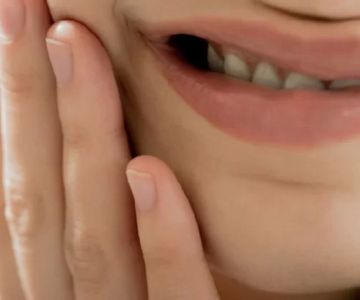What is Chronic Obstructive Pulmonary Disease (COPD)?
Chronic Obstructive Pulmonary Disease, commonly referred to as COPD, is a progressive lung disease that makes breathing difficult. The condition is primarily caused by long-term exposure to irritating gases or particulate matter, most often from smoking. It includes conditions such as emphysema and chronic bronchitis. While COPD primarily affects the lungs, its effects are far-reaching and can also significantly impact the oral cavity and overall dental health.
1. Impact of COPD on Oral Health
Individuals with COPD often experience a range of oral health challenges that arise as a result of the disease itself or the treatments used to manage it. The use of inhalers, for example, can lead to dry mouth, an issue that can contribute to a number of oral problems, including tooth decay, gum disease, and difficulty swallowing. Additionally, COPD can increase the risk of periodontal disease and oral infections due to its effect on the immune system.
2. Dry Mouth and Reduced Saliva Production
One of the most common oral issues in people with COPD is dry mouth, or xerostomia. This condition occurs when there is not enough saliva in the mouth to keep it moist. Dry mouth can lead to an increased risk of tooth decay and gum disease, as saliva plays a crucial role in neutralizing acids, washing away food particles, and fighting harmful bacteria. COPD medications, such as bronchodilators and inhaled steroids, are often linked to reduced saliva production, exacerbating this problem.
3. Increased Risk of Gum Disease
People with COPD are at a heightened risk for periodontal disease, a serious gum infection that damages the soft tissue and destroys the bone that supports the teeth. This is due to the combination of poor oral hygiene, dry mouth, and the impact of the disease on the immune system. Furthermore, the inflammation caused by COPD may make it harder for the body to fight off bacteria that contribute to gum disease, leading to more severe oral health complications. Studies also show that periodontal disease in people with COPD may even exacerbate respiratory problems, creating a vicious cycle.
4. Tooth Decay and Cavities
Tooth decay is another significant concern for those living with COPD. Reduced saliva production, combined with an increase in oral bacteria, leads to a higher likelihood of cavities. Furthermore, people with COPD may have a lower pH in their saliva, which can increase the rate of enamel erosion. The condition can also make it more difficult to maintain proper oral hygiene practices, further contributing to the risk of cavities. Regular visits to the dentist and good oral hygiene habits are essential for managing tooth decay in people with COPD.
5. Increased Likelihood of Oral Infections
In addition to the common issues of gum disease and tooth decay, individuals with COPD are also at a greater risk for oral infections. The dry mouth associated with COPD can cause the mucosal tissues in the mouth to become more vulnerable to infections. Conditions such as thrush, a fungal infection, can occur more easily when the mouth lacks sufficient moisture. These infections not only cause discomfort but may also contribute to other health complications, including difficulty breathing and the worsening of COPD symptoms.
6. The Role of Inhalers and Medications in Oral Health
Inhalers are often a necessary part of managing COPD, but they can also have detrimental effects on oral health. The use of inhaled steroids, in particular, can lead to a decrease in saliva production, dry mouth, and an increased risk of oral infections. Inhalers can also deposit medications directly in the mouth, leading to potential irritation and the buildup of fungi or bacteria. It's crucial for individuals with COPD to rinse their mouths thoroughly after using inhalers and to follow up with their healthcare providers for recommendations on proper oral care.
How to Protect Your Oral Health with COPD
Maintaining good oral hygiene is particularly important for people with COPD to prevent complications such as gum disease, tooth decay, and oral infections. Here are some tips to help protect your oral health:
- Brush Your Teeth Regularly: Brush at least twice a day with fluoride toothpaste to remove plaque and food particles. Consider using a soft-bristled toothbrush to avoid irritation from dry mouth.
- Stay Hydrated: Drink plenty of water throughout the day to help combat dry mouth. Using a humidifier in your home can also help increase moisture in the air.
- Use Sugar-Free Gum or Lozenges: Chewing sugar-free gum or sucking on lozenges can stimulate saliva production and help prevent dry mouth.
- Visit Your Dentist Regularly: Regular dental checkups are crucial to catch any early signs of oral disease or infections. Make sure to inform your dentist about your COPD diagnosis, so they can tailor your treatment plan accordingly.
- Rinse After Using Inhalers: If you use inhalers, be sure to rinse your mouth thoroughly afterward to reduce the risk of oral infections.



 Westgate Dental Arts3.0 (2 review)
Westgate Dental Arts3.0 (2 review) Coventry Family Dental4.0 (247 review)
Coventry Family Dental4.0 (247 review) Familia Dental3.0 (1028 review)
Familia Dental3.0 (1028 review) Dr. Daniel S. Fife, DDS4.0 (31 review)
Dr. Daniel S. Fife, DDS4.0 (31 review) Dentistry At Suburban Square: Michael I. Wollock, DMD4.0 (1228 review)
Dentistry At Suburban Square: Michael I. Wollock, DMD4.0 (1228 review) Comfort Care Dental4.0 (1156 review)
Comfort Care Dental4.0 (1156 review) The Importance of Oral Health Education During Pregnancy for a Healthy Pregnancy
The Importance of Oral Health Education During Pregnancy for a Healthy Pregnancy Why Skipping Dental Checkups Can Lead to Bigger Oral Health Problems
Why Skipping Dental Checkups Can Lead to Bigger Oral Health Problems Best Tips for Brushing Your Teeth Properly for Healthy Gums: Essential Techniques for Oral Health
Best Tips for Brushing Your Teeth Properly for Healthy Gums: Essential Techniques for Oral Health Advantages of Porcelain Dental Restorations
Advantages of Porcelain Dental Restorations How Can Diabetes Cause Tooth and Gum Problems? Preventing and Managing Oral Health Issues
How Can Diabetes Cause Tooth and Gum Problems? Preventing and Managing Oral Health Issues Healthy Habits for Promoting Good Oral Health and Hygiene: Tips for a Healthy Smile
Healthy Habits for Promoting Good Oral Health and Hygiene: Tips for a Healthy Smile